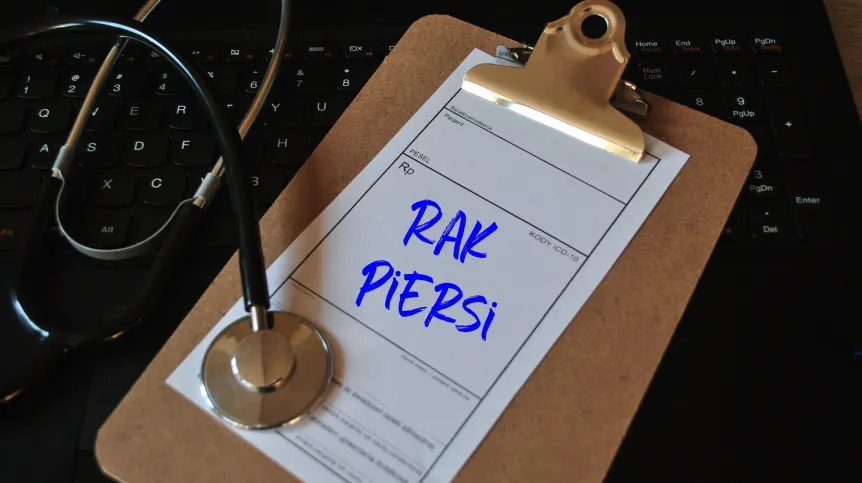
A team of scientists, doctors and engineers from Krakow has developed an innovative technology for early detection of breast cancer using artificial intelligence. Preclinical studies have shown a high effectiveness of the solution. The creators of the system are ready for clinical trials and implementation.
According to Michał Matuszewski, the originator and co-creator of the new breast health monitoring method Ailis, the system was created by a team of Polish scientists, doctors and engineers who decided to combine the proprietary method called Dynamic Parametric Imaging (DPI) with artificial intelligence and telemedicine to detect early symptoms of breast cancer and estimate the risk of developing the disease.
'We have been working on this system for seven years. Soon we will be ready to present it to the world. We still have to go through clinical trials and certification, but we are technologically ready for implementation', Matuszewski says. The system's world premiere is planned for the health expo in Dubai in February 2024.
Preclinical studies conducted on a group of nearly 200 women showed a 94% sensitivity of the new method.
'This means that it is very effective in detecting anomalies that occur in tissues when cancer begins to develop', says the co-author of the method.
The authors of the solution explain that the procedure is based on a four-minute, contactless and painless breast examination performed with a special device called Ailis. It makes about 250 measurements (images of tissue functioning). Then, within approx. 10 minutes, the system the device is a part of performs a technologically advanced data analysis (with the use of artificial intelligence), after which women immediately receive information about the health of their breasts.
AI expert Professor Mariusz Witek points out that the innovation is that the system does not use radiation doses (like mammography) and does not examine the structure of tissues (like ultrasound and mammography), but instead uses a proprietary, innovative method of imaging tissue functions, including recording blood flow and metabolism.
'Our method also uses the most dynamically developing artificial intelligence techniques based on deep neural network (DNN), which we have been using for many years in high-energy experiments conducted at the CERN centre in Geneva', adds Professor Mariusz Witek.
The system includes an application that not only monitors, but also collects the digital history of the patient's examinations, in a way becoming her personal health care specialist.
'Our system has its own breast density algorithm that correlates with women's breast density and allows for personalized diagnostics for each of them. With subsequent examinations, it compares the images and results from previous examinations with the current one, draws conclusions and provides appropriate recommendations that facilitate further diagnostic decisions', explains Dr. Kamil Drucis, a member of the research team.
The creation of the Ailis system was supported by the European Union that granted PLN 6.5 million from the European Development Fund for this purpose.
Polish oncologists, scientists, biomedical engineers and programmers, who jointly created this system, plan to implement it worldwide in the next few years. They are looking for further financing on the Polish market for this purpose.
According to the creators of the system, it is a response to the needs and challenges of health care around the world, such as: the growing number of cancers, an aging population, the increasingly low availability of radiologists and medical staff, the need to digitise health care, personalise and automate examinations.
The authors of the solution add that breast cancer is a special challenge for the health service, because according to the World Health Organization (WHO) data it is the most common malignant tumour and the second most common cause of cancer-related deaths among women. (PAP)
Author: Rafał Grzyb
rgr/ joz/ kap/
tr. RL













